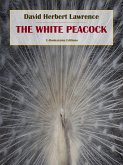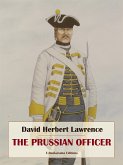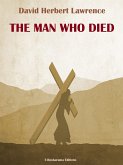Set in a small village in the English countryside, this is the story of a secluded, sensitive rector's daughter who yearns for meaning beyond the life to which she seems doomed. When she meets a handsome young gipsy whose life appears different from hers in every way, she is immediately smitten and yet still paralysed by her own fear and social convention. Not until a natural catastrophe suddenly, miraculously sweeps away the world as she knew it does a new world of passion open for her.
Lawrence's spirit is infused by all his tenderness, passion, and knowledge of the human soul.
( Source: goodreads.com)
Dieser Download kann aus rechtlichen Gründen nur mit Rechnungsadresse in A, B, BG, CY, CZ, D, DK, EW, E, FIN, F, GR, HR, H, IRL, I, LT, L, LR, M, NL, PL, P, R, S, SLO, SK ausgeliefert werden.









